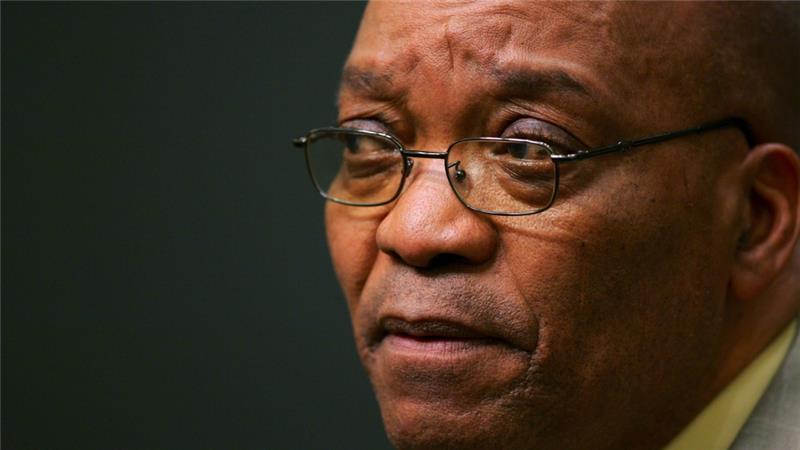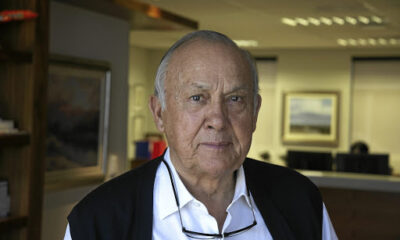South African President Jacob Zuma will face renewed pressure to quit after partial election results showed his African National Congress losing outright control of the capital, Pretoria, and Johannesburg in its worst electoral showing since apartheid ended.
The ANC and the Democratic Alliance were running neck and neck in both towns, with about 86 percent of votes counted from Wednesday’s local government election. The ruling party conceded that it lost the southern Nelson Mandela Bay municipality, a key port and vehicle manufacturing hub.
“Whichever way you look at it, people are saying they are dissatisfied with either Zuma or the way the ANC is dealing with its leadership crisis,” said Abdul Waheed Patel, managing director of Cape Town-based Ethicore Political Consulting.
Calls for Zuma, 74, to resign have mounted since the nation’s top court ruled in March that he violated the constitution by refusing to repay taxpayer money spent on upgrading his private home. He may also have to face 783 charges of corruption, racketeering, fraud and money laundering, following a high court decision that prosecutors erred when they decided to drop a case against him just weeks before he became president in 2009.
Yet, Zuma’s allies in the ANC National Executive Committee and in the government may shield him for being replaced before his current presidential term ends in 2019.
“It’s not going to be a quick process,” said Patel. “I don’t think it’s going to be an automatic exit for Zuma just because the ANC has done so dismally. He still has some sway; I don’t think he becomes powerless.”
The ANC also has little appetite to oust another leader after the party’s removal of Thabo Mbeki in 2007 allowed Zuma to take over the leadership, Peter Attard Montalto, an economist at Nomura International Plc, said in an e-mailed response to questions.
“All sides have already agreed they cannot remove another president,” he said.
Rand Strength
The rand gained 0.2 percent to 13.6812 per dollar at 9:50 a.m. in Johannesburg on Friday. It was the best performer of 24 emerging-market currencies monitored by Bloomberg on Thursday. The currency is still down about 40 percent against the dollar since Zuma took office on May 9, 2009.
Besides unhappiness with Zuma, the ANC has also come under criticism for failing to reduce a 27 percent unemployment rate, improve living standards and reignite an economy that the central bank projects will post zero percent growth this year. Communities staged 102 protests against a lack of decent housing, education and other services in the first seven months of the year, up from 89 in the same period last year, according to Municipal IQ, which monitors the municipalities.
“We can’t blame President Zuma,” ANC spokesman Zizi Kodwa said. “The party leadership will take collective responsibility.”
Pretoria Vote
The ANC fell behind in Tshwane, the municipality that includes Pretoria, with 42.3 percent of the vote, narrowly behind the Democratic Alliance with 43.4 percent, partial tallies released by the Independent Electoral Commission show. In Johannesburg, the ruling party had 42 percent support compared with the DA’s 41.7 percent. The DA was well ahead in Nelson Mandela Bay, which includes the city of Port Elizabeth, with 46.7 percent support, compared to the ANC’s 41.2 percent, and increased its majority in Cape Town.
The Economic Freedom Fighters, which advocates the nationalization of mines, banks and land, holds the balance of power in Pretoria and Johannesburg. Like the DA, it has said it is prepared to enter into coalitions with other opposition parties, but not the ANC.
With 13.1 million, or about 86 percent of the estimate of proportional representation votes cast nationally in the election counted as of 8:20 a.m. on Friday, the ANC had 54.7 percent of the total support, followed by the DA with 26.6 percent, according to the commission. The Economic Freedom Fighters stood at 8 percent. The ANC garnered 62.9 percent support in the 2011 municipal election. Including votes for ward councilors, the ANC had 54.3 percent overall support.
“We will not lie and say that we are not worried when we lose a metro like Nelson Mandela Bay,” the ANC’s chief whip in parliament, Jackson Mthembu, said in an interview in Pretoria. “We need to jack up our act.”


 Forex2 weeks ago
Forex2 weeks ago


 Naira2 weeks ago
Naira2 weeks ago
 Billionaire Watch2 weeks ago
Billionaire Watch2 weeks ago




 Naira2 weeks ago
Naira2 weeks ago




 Naira2 weeks ago
Naira2 weeks ago




 Naira4 weeks ago
Naira4 weeks ago


 Naira6 days ago
Naira6 days ago
 Banking Sector4 weeks ago
Banking Sector4 weeks ago

















